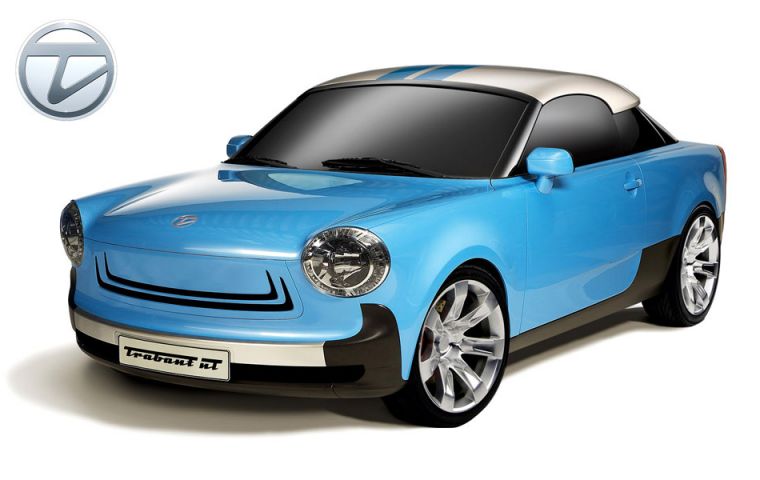MercoPress. South Atlantic News Agency
EC checks into German government aid to car manufacturers
 The East German Trabant has become the VW Gold and Passat
The East German Trabant has become the VW Gold and Passat European Commission is to examine aid paid out by the German government to car manufacturers BMW and Volkswagen. The money has been pledged to promote projects in eastern Germany.
The European Commission has decided to open investigations into state aid that the German government has pledged to car manufacturers BMW and Volkswagen (VW) to carry out projects in the former East Germany.
German authorities are planning to contribute 46 million Euros towards a 368-million-Euro project to manufacture electric cars in BMW's plant in Leipzig. The i3 and hybrid i8 models are due on the market in 2013.
In a statement, the European Commission said it understood “the importance of the project from the environmental and energy policy point of view,” but stressed it still needed “to assess it compliance with ... EU provisions for large investment projects.”
The EU regulates state aid to prevent companies from gaining an unfair advantage over competitors. The European Commission, as the bloc's executive arm, is tasked with policing those rules.
Elsewhere in the former East Germany, authorities are investing in another project aimed at supporting the economically depressed region.
The state is planning to grant 83.7 million Euros towards a 700-million-Euro Volkswagen project aimed at modernizing its Zwickau plant.
The EU Commission said it had “doubts” on the classification of the state aid suggested by German authorities.
The Zwickau factory in Saxony, where the iconic East German Trabant car was once produced, is currently manufacturing the Golf hatchback and the Passat saloon models, as well as bodies for the luxury Volkswagen Phaeton and Bentley Continental.
Meanwhile, the European Commission has given the green light to two other state-supported projects in Eastern Germany.
Globalfoundries in Dresden was awarded a regional aid grant amounting to 219 million Euros. The investment will allow the company, which currently produces computer microprocessors for Advanced Micro Devices (AMD), to manufacture other kinds of semiconductor wafers.
Dresden qualifies for support through regional subsidies because there are high levels of unemployment in the area and living standards are low.
The state support package for CRS Reprocessing in Jena, totaling 700,000 Euros, has also been approved by the Commission. The money will go towards producing specialized solar wafers.




Top Comments
Disclaimer & comment rulesCommenting for this story is now closed.
If you have a Facebook account, become a fan and comment on our Facebook Page!